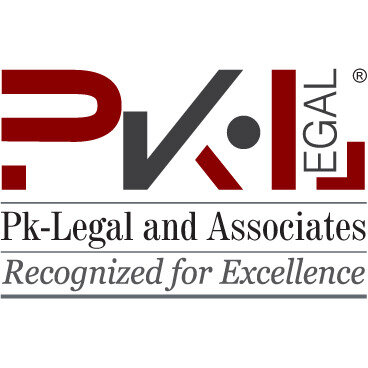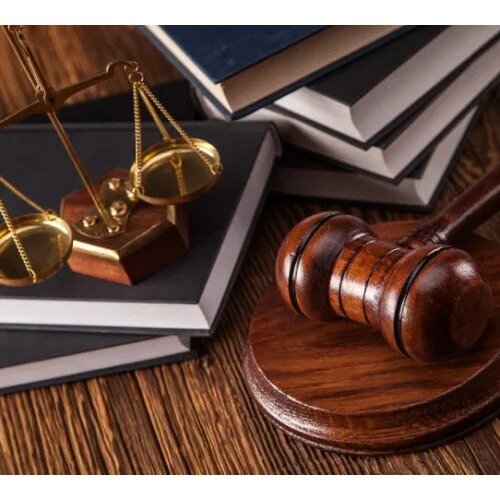Best Elder Law Lawyers in Islamabad
Share your needs with us, get contacted by law firms.
Free. Takes 2 min.
List of the best lawyers in Islamabad, Pakistan
Pakistan Elder Law Legal Questions answered by Lawyers
Browse our 1 legal question about Elder Law in Pakistan and read the lawyer answers, or ask your own questions for free.
- proof of legal heir
- I am nominated by my uncle for his property after his death, he does not have any legal heir parents, sister, brothers, children, and wife. i need to get the succession certificate, but how can I prove to the court that there is no legal heir for my uncle now,... Read more →
-
Lawyer answer by SJ Law Experts
Thank you. SJ Law Experts, Islamabad [Advocates, Legal Advisors & Immigration Lawyers].
Read full answer
About Elder Law in Islamabad, Pakistan
Elder Law in Islamabad, Pakistan, encompasses a variety of legal matters affecting the older population. The primary objective is to protect the legal rights and welfare of senior citizens. Issues under Elder Law often include estate planning, retirement benefits, health care, protection against elder abuse, and property ownership. It is a field that has gained importance with the growing awareness of the needs and rights of senior citizens within Pakistani society.
Why You May Need a Lawyer
There are several situations where seeking legal help in Elder Law is advisable. This may include creating a will or trust, designating power of attorney, and making healthcare decisions for those who may no longer be capable. Furthermore, legal assistance may be needed for understanding and accessing retirement benefits, addressing elder abuse, resolving family disputes over guardianship, and ensuring that assets are distributed according to the senior’s wishes after their passing.
Local Laws Overview
Local laws in Islamabad govern the protection and rights of the elderly. These include but are not limited to:
- Protection against elder abuse, which is punishable under various sections of the Pakistan Penal Code.
- Succession laws that regulate the distribution of assets after an individual's death, which can include property and financial assets.
- Healthcare regulations that provide the elderly with certain rights to healthcare services and support.
- Retirement benefits under government systems, which detail the payouts and other benefits to which retired government employees are entitled.
Frequently Asked Questions
What legal documents should the elderly consider preparing?
Elderly individuals should consider preparing a will, durable power of attorney for property and finances, a healthcare proxy or living will, and a trust if necessary to manage assets.
Can an elder be forced into a nursing home against their will?
No one can be forced into a nursing home against their will as long as they have the capacity to make their own decisions. In case of incapacity, a legally appointed guardian may decide on their behalf.
Who can I report to if I suspect elder abuse?
Suspected elder abuse can be reported to local law enforcement authorities and social services organizations dedicated to protecting senior citizens' rights and welfare.
What is the process of guardianship for an elder in Islamabad?
The guardianship process involves a court appointment of a guardian to take care of an elder who is found to be incapable of making informed decisions about their personal and financial affairs.
What rights do elders have regarding healthcare?
Elders have the right to receive the necessary healthcare and medical treatment, and they can make decisions regarding their healthcare, including consenting to or refusing treatment.
Is there any government assistance available for the elderly?
Yes, the government offers various forms of assistance for the elderly, including retirement benefits and healthcare facilities.
How is elder law different from other types of law?
Elder Law specifically focuses on issues affecting the aging population, ensuring their rights and needs are taken care of, which can be quite different from issues faced by the younger population.
What happens if someone dies without a will in Islamabad?
If someone dies without a will, their property is distributed according to the laws of intestate succession under Islamic jurisprudence or relevant personal laws.
Can elders make decisions about their property after being diagnosed with dementia?
Individual capacity is key. If an elder has been diagnosed with dementia, they may still make legal decisions about their property as long as they are deemed competent at the time of making those decisions.
What can I do if I have a complaint about a nursing home or care facility?
A complaint about a nursing home or care facility can be lodged with the regulatory authorities governing healthcare facilities, or if necessary, one can seek legal recourse through the courts.
Additional Resources
For those seeking additional support in Elder Law issues in Islamabad, the following resources may be useful:
- National Council of Social Welfare (NCSW), Pakistan.
- HelpAge International’s affiliate in Pakistan, providing assistance to senior citizens.
- Ministry of Human Rights, Pakistan, for issues related to the abuse of the elderly.
- Local non-profit organizations dedicated to elder care and welfare.
Next Steps
If you need legal assistance in Elder Law, the next steps involve:
- Identifying a reputable lawyer or law firm with experience in Elder Law.
- Scheduling a consultation to discuss your specific concerns and needs.
- Gathering all relevant documents and information to bring to your consultation.
- Becoming informed about your rights and the legal processes involved.
Lawzana helps you find the best lawyers and law firms in Islamabad through a curated and pre-screened list of qualified legal professionals. Our platform offers rankings and detailed profiles of attorneys and law firms, allowing you to compare based on practice areas, including Elder Law, experience, and client feedback.
Each profile includes a description of the firm's areas of practice, client reviews, team members and partners, year of establishment, spoken languages, office locations, contact information, social media presence, and any published articles or resources. Most firms on our platform speak English and are experienced in both local and international legal matters.
Get a quote from top-rated law firms in Islamabad, Pakistan — quickly, securely, and without unnecessary hassle.
Disclaimer:
The information provided on this page is for general informational purposes only and does not constitute legal advice. While we strive to ensure the accuracy and relevance of the content, legal information may change over time, and interpretations of the law can vary. You should always consult with a qualified legal professional for advice specific to your situation.
We disclaim all liability for actions taken or not taken based on the content of this page. If you believe any information is incorrect or outdated, please contact us, and we will review and update it where appropriate.













